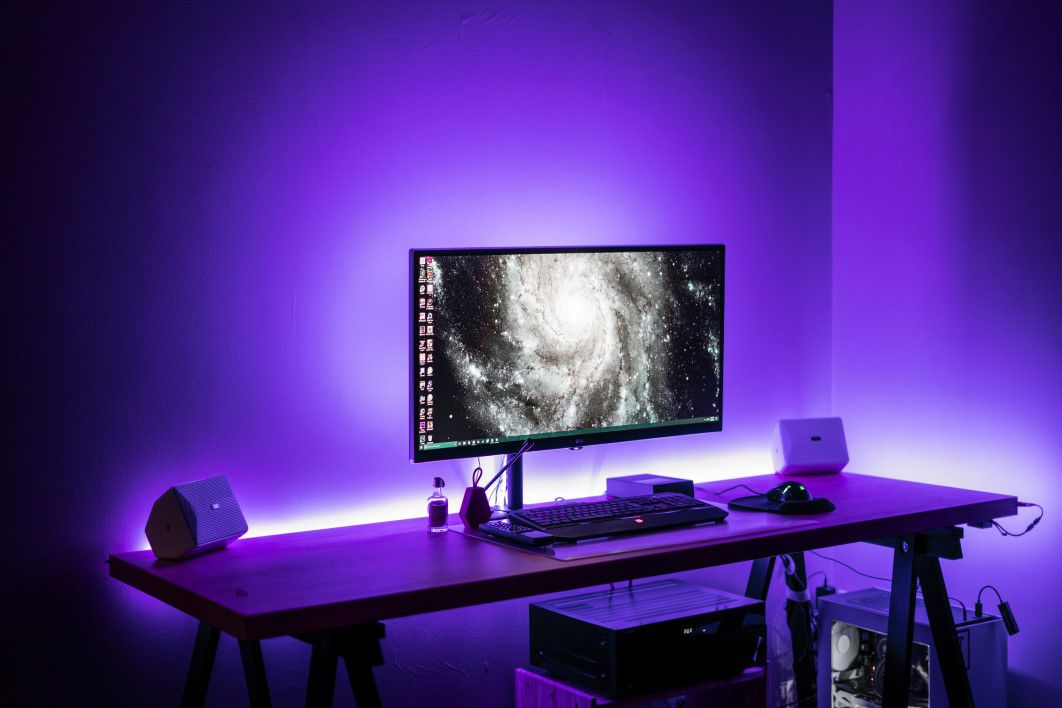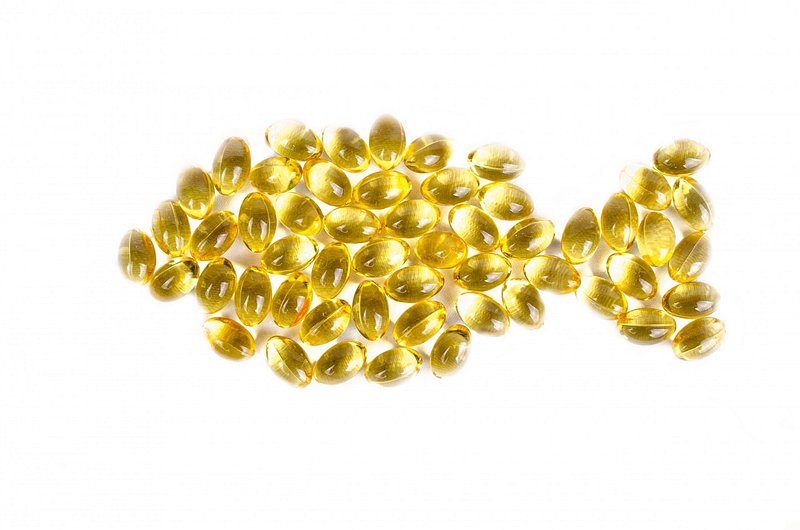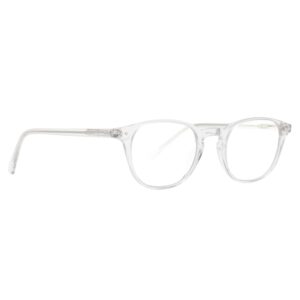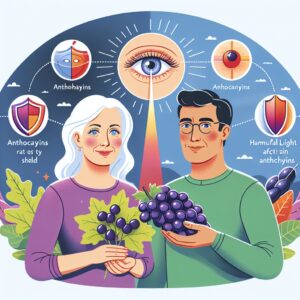
Key Takeaways
- Freelancers are exposed to blue light for prolonged periods, which can impact their eye health and sleep patterns.
- Supplements like zinc, lutein, zeaxanthin, omega-3 fatty acids, vitamin A, and blueberry extract can help mitigate the effects of blue light.
- Quality supplements and proper usage are crucial for maximum benefit and safety.
- Integrating other protective measures, such as managing screen time and diet, enhances overall eye health.
- Real-life freelancer experiences underscore the importance of addressing blue light exposure for maintaining productivity and well-being.
The Need for Blue Light Protection in a Freelancer’s Life

“Hd Monitor Computer Royalty Free Photo” from negativespace.co and used with no modifications.
As freelancers, we’re no strangers to the glow of a computer screen—it’s our portal to the world of work. But this constant exposure to digital devices comes with a less talked about side effect: the blue light emitted from screens can strain our eyes and disrupt our sleep. That’s why understanding blue light and how to protect ourselves from its effects is more than just a health issue; it’s about safeguarding our livelihood.
Understanding Blue Light and Its Effects
Exposure to blue light, which is emitted by screens and artificial lighting, can have various impacts on our health, particularly on our eyes. It’s important for freelancers, who often spend long hours in front of computers, to understand the potential risks and take steps to mitigate them. One such step could be the use of blue light supplements that help protect the eyes from the harmful effects of prolonged exposure.
Blue light is a type of light with a very short wavelength, producing a higher amount of energy. Studies suggest that exposure to the blue end of the light spectrum could cause serious long-term damage to your eyes. It’s not just about the immediate symptoms like eye strain and headaches; it’s the potential for retinal damage and the contribution to age-related macular degeneration that we need to be wary of. But it’s not all doom and gloom—there are ways to protect those precious peepers of ours.
Why Freelancers are at High Risk
Freelancers, especially those of us who work in the digital realm, spend an inordinate amount of time staring at screens. Whether it’s for coding, design, writing, or virtual meetings, our eyes are locked onto an endless sea of pixels. Because we often have the freedom to set our own schedules, our work hours can extend well into the night, increasing our exposure to blue light at a time when our bodies are preparing for rest. This can disrupt our natural sleep-wake cycle, known as the circadian rhythm, leading to poor sleep quality and a host of other health issues.
Top Supplements to Combat Blue Light Exposure
Now, let’s dive into the good stuff—how we can fight back against blue light. Supplements can be a freelancer’s ally, providing the nutritional backup our eyes need. Let’s break down the top supplements that are often recommended for combating the effects of blue light exposure.

“File:Zinc(element).png – Wikimedia Commons” from commons.wikimedia.org and used with no modifications.
Zinc—A Vital Mineral for Eye Health
Zinc is a superhero when it comes to eye health. It’s an essential mineral that plays a critical role in transporting vitamin A from the liver to the retina. This process is crucial for creating melanin, a protective pigment in the eyes. For freelancers, ensuring you get enough zinc can help maintain your eye health in the face of relentless screen time.
Typically, adults should aim for about 8 to 11 milligrams of zinc per day, but remember, the quality of the supplement and how you take it matters a lot. Always choose reputable brands and consider taking zinc with food to avoid stomach upset.
Lutein and Zeaxanthin – Nature’s Shield for Your Eyes

Lutein and zeaxanthin are like the dynamic duo of eye protection. These are carotenoids found in high concentrations in the macula, a part of the retina responsible for central vision. They act like natural sunglasses, filtering harmful blue light and fighting off free radicals. Since our bodies don’t naturally produce these carotenoids, we need to obtain them through our diet or supplements.

“File:Zeaxanthin molecule ball.png …” from commons.wikimedia.org and used with no modifications.
For those of us glued to our screens, these supplements can be a game-changer. The recommended daily intake isn’t set in stone, but studies suggest that 10 mg of lutein and 2 mg of zeaxanthin are beneficial. Look for supplements labeled “Lutein 10 mg / Zeaxanthin 2 mg” for a simple way to keep your eyes guarded against that blue light barrage.
Omega-3 Fatty Acids – Boosting Eye Comfort

“Omega 3 Images | Free Photos, PNG …” from www.rawpixel.com and used with no modifications.
Omega-3 fatty acids, particularly EPA and DHA, are vital for maintaining eye health and comfort. These fats are crucial components of the retina, and they play a significant role in reducing inflammation, which can help with those dry, irritated eyes we all get after a long day of freelancing. The American Heart Association recommends eating two servings of fish a week, which is a great natural source of omega-3s. But if fish isn’t your thing, or you’re looking for a more concentrated dose, supplements are your friend.
When picking an omega-3 supplement, aim for one that provides at least 500 mg of EPA and DHA combined. And remember, quality is key—look for brands that have third-party testing for purity and potency.
- Choose supplements with high-quality ingredients and third-party testing.
- Integrate supplements into your routine consistently for best results.
- Combine supplementation with other protective measures like blue light blocking glasses or screen filters.
Vitamin A – Essential for Vision and Immune Function
Vitamin A is essential for maintaining healthy vision, and it becomes even more critical when we’re facing the onslaught of blue light. It helps the eyes convert light into brain signals that allow us to see, and it’s also vital for preserving night vision. This is particularly important for freelancers who burn the midnight oil.

“Lemon Honey Roasted Carrots | Something …” from www.flickr.com and used with no modifications.
For vitamin A, the recommended daily allowance is about 700 to 900 micrograms for adults. Carrots, sweet potatoes, and dark leafy greens are great food sources, but if you’re considering a supplement, look for one that contains vitamin A as beta-carotene, which is a safer form because it’s converted to vitamin A in the body as needed.
Blueberry Extract – Antioxidant Power for Optimal Vision
Blueberries aren’t just a tasty treat; they’re packed with antioxidants that can help protect your eyes from blue light. The antioxidants in blueberries, particularly anthocyanins, are known for their ability to neutralize free radicals and reduce oxidative stress, which is beneficial for eye health.
There’s no specific guideline for how much blueberry extract to take, but including blueberries in your diet or taking a supplement that contains at least 160 mg of standardized blueberry extract could provide some benefit. Just be sure to read the label and follow the manufacturer’s dosage recommendations.
The Science Behind Supplements and Blue Light
It’s not just about popping pills and hoping for the best. There’s real science behind how these supplements work. They contain nutrients and antioxidants that are proven to accumulate in the retina and form a protective layer that filters harmful blue light. This helps in reducing the oxidative stress that can lead to eye damage over time.
But remember, supplements are just one part of the equation. They’re most effective when combined with other strategies like taking regular breaks from screens and using blue light filters on your devices.
How Supplements Interact with Blue Light
Think of these supplements as a line of defense. When blue light enters the eye, it’s these nutrients that are waiting to absorb the energy and protect the sensitive cells in the retina. This is especially important at night when blue light exposure can disrupt the production of melatonin, the hormone that helps us sleep.
Research Findings: Efficacy of Eye Health Supplements
Research is increasingly supporting the use of eye health supplements. For example, the AREDS2 study, a major clinical trial, found that a specific blend of vitamins and minerals could significantly reduce the risk of progression in people with macular degeneration. While freelancers might not have this condition, the findings underscore the importance of nutrients in maintaining eye health in the face of blue light exposure.
And it’s not just about eye health. Good sleep is crucial for managing stress, and studies have shown that blue light exposure can disrupt sleep patterns. By protecting your eyes with the right supplements, you could also be promoting better sleep, which is a win-win for stressed freelancers.
Incorporating Supplements into Your Daily Routine
Consistency is key when it comes to supplements. To make them work for you, it’s important to take them as part of a daily routine. This doesn’t mean you should go overboard—more isn’t always better. Stick to the recommended dosages and consider talking to a healthcare provider to tailor a supplement plan that’s right for you.
Identifying Quality Supplements
Not all supplements are created equal. When you’re shopping for supplements, look for brands that have been third-party tested for quality and purity. This means that an independent organization has verified that the supplements contain exactly what they say they do, without harmful levels of contaminants.
Best Practices for Supplementation
Here’s how to make supplements work best for you:
- Read labels carefully and follow dosage instructions.
- Take supplements with meals to improve absorption and reduce stomach discomfort.
- Store them in a cool, dry place to preserve their potency.
- Keep track of what you’re taking, so you can discuss your regimen with your healthcare provider.
Integrating Other Blue Light Protective Measures
Supplements are just one piece of the puzzle. To truly protect your eyes from blue light, consider integrating other measures such as:

“Eyewear glasses side – PixaHive” from pixahive.com and used with no modifications.
- Using blue light blocking glasses when working on screens.
- Installing blue light filters on your digital devices.
- Practicing the 20-20-20 rule: every 20 minutes, look at something 20 feet away for 20 seconds.
- Ensuring your work environment has proper lighting to reduce glare.
Real Experiences from Freelancers
“Ever since I started taking lutein and zeaxanthin supplements, I’ve noticed a significant reduction in eye strain. Plus, my sleep has improved. I can’t imagine going back to my old habits!” – Jamie, Freelance Graphic Designer
Stories like Jamie’s are becoming more common as freelancers discover the benefits of supplements in managing blue light exposure. But it’s not always a smooth road. Some freelancers find it challenging to remember to take their supplements regularly or to choose the right ones.
Success Stories: Better Eye Health and Productivity
For many freelancers, the proof is in the pudding. Consistent use of eye health supplements has led to reduced eye strain, fewer headaches, and better sleep patterns, which all contribute to higher productivity and a better quality of life.
Challenges and How to Overcome Them
One of the biggest challenges is remembering to take supplements daily. Setting a reminder on your phone or keeping the supplements next to your computer can help make it a part of your routine. It’s also important to stay informed about which supplements are best for eye health, as new research is always emerging.
Lifestyle Adjustments for Enhanced Blue Light Protection
While supplements are helpful, they work best when paired with lifestyle adjustments. Managing screen time, taking regular breaks, and ensuring a diet rich in eye-friendly nutrients can all play a role in protecting your vision and overall health.
Most importantly, remember that your health is your most valuable asset as a freelancer. By taking proactive steps to manage blue light exposure, you’re not just protecting your eyes—you’re investing in your future.
Screen Time Management Techniques
Managing screen time is essential, not just for our eyes, but for our overall well-being. As freelancers, we can sometimes lose track of how long we’ve been working. To prevent this, set a timer to remind yourself to take short breaks every hour. During these breaks, step away from the screen, stretch, or simply rest your eyes. Also, try to designate tech-free times in your day, especially before bed, to help your mind unwind and prepare for sleep.
Physical Exercises to Reduce Eye Strain

“Stretching Exercises Free Stock CC0 …” from stocksnap.io and used with no modifications.
Eye strain is a common issue for freelancers. To combat this, practice eye exercises such as focusing on a distant object every 20 minutes or doing the “20-20-20” rule. Additionally, physical activity like walking or yoga can increase blood circulation, which is beneficial for eye health. Remember to blink often while working on screens to keep your eyes moist and prevent dryness.
Dietary Choices to Support Eye Health
What we eat significantly impacts our eye health. Foods rich in vitamins C and E, zinc, lutein, zeaxanthin, and omega-3 fatty acids are great for maintaining healthy eyes. Incorporate colorful fruits and vegetables, fish, nuts, and seeds into your diet. These foods not only help protect against blue light but also support overall health, which is vital for freelancers who need to stay at the top of their game.
Frequently Asked Questions (FAQ)
Let’s address some common questions about blue light and the use of supplements to help freelancers manage their exposure effectively.
What Are the Symptoms of Blue Light Exposure?
Symptoms of blue light exposure include eye strain, headaches, dry eyes, blurred vision, and difficulty sleeping. If you’re experiencing these symptoms regularly, it might be time to consider how you’re protecting your eyes from blue light and whether supplements could help.
How Long Should I Take Blue Light Supplements Before Noticing Benefits?
It varies from person to person, but many people report noticing a difference in their eye comfort and sleep quality within a few weeks of consistent supplementation. However, it’s essential to maintain ongoing protection, as the benefits of supplements are cumulative and build over time.
Remember that supplements are not a quick fix but part of a long-term strategy for maintaining eye health in the digital age.
Can Blue Light Supplements Replace Blue Light Blocking Glasses?
While blue light supplements provide internal protection for the eyes, blue light blocking glasses offer external protection by filtering out blue light before it reaches your eyes. Ideally, using both in conjunction provides the most comprehensive protection. However, if you have to choose one, consider your specific circumstances and consult with an eye care professional.
Supplements work systemically and support overall eye health, while glasses are a barrier between your eyes and the screen.
Think of it this way: supplements are your internal armor, and glasses are your shield.
Are There Any Side Effects to Taking Blue Light Supplements?
Most blue light supplements are safe when taken as directed. However, as with any supplement, there can be side effects, especially if taken in excess. Always adhere to the recommended dosages and consult with a healthcare provider if you have any concerns, particularly if you have pre-existing health conditions or are taking other medications.
How Do I Choose the Right Supplement Brand for Me?
Choosing the right supplement brand involves a bit of research. Look for brands that have a strong reputation, positive reviews from users, and transparency in their labeling. Third-party testing for purity and potency is also a good sign of quality. Additionally, consider the form of the supplement—capsules, tablets, gummies—and choose what fits best into your lifestyle and dietary preferences.
Also, be wary of claims that seem too good to be true. Reputable brands will provide realistic expectations and clear information about their products.
Lastly, don’t hesitate to reach out to customer service with questions about their products. A reliable brand will be happy to provide you with the information you need to make an informed decision.
By taking the right steps and making informed choices, freelancers can effectively manage their blue light exposure, maintain their eye health, and continue to thrive in their digital workspaces.


